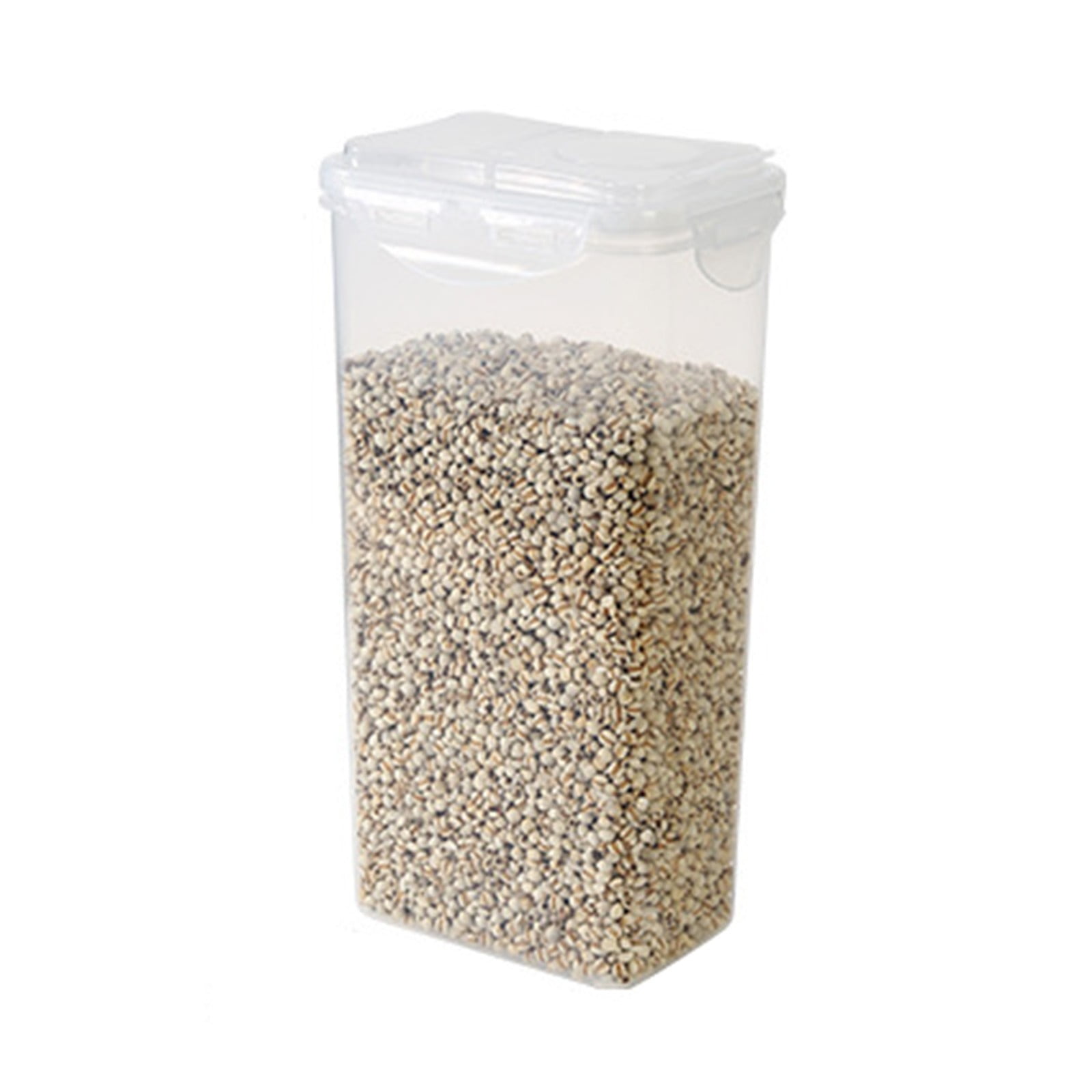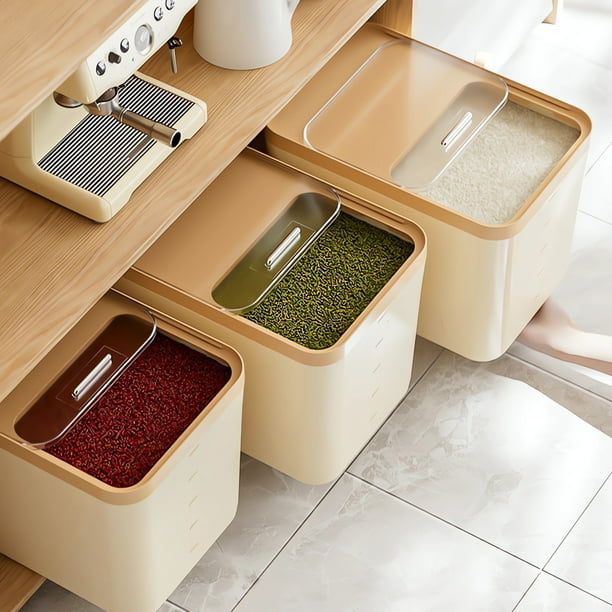A Comprehensive Guide to the Various Kinds Of Bulk Plastic Containers Available Today
Mass plastic containers play an important role in various sectors, offering remedies for storage space and transportation. Their varied kinds satisfy various demands, from rigid alternatives for strong products to versatile containers suiting different shapes. Each kind offers unique benefits, making it important to comprehend their applications and features. As industries advance, so do the demands for efficient container options. What variables should one consider when selecting the best bulk container?
Introduction of Bulk Plastic Containers

Types of Bulk Plastic Containers
Mass plastic containers come in various forms, each suited to certain applications. Inflexible mass containers, versatile bulk containers, and intermediate bulk containers stand for the key categories, each offering distinct advantages. Recognizing these types is important for picking the best container for carrying and saving products.

Rigid Mass Containers
Stiff bulk containers are essential for effective storage space and transport of different products across industries. These containers are typically built from durable plastics, permitting them to endure harsh handling and ecological conditions. They come in various forms and dimensions, consisting of totes, drums, and containers, making them appropriate for saving everything from granular substances to liquids. Inflexible containers commonly include strengthened wall surfaces and safe lids, making certain the materials remain secured during transit. Their stackable layout takes full advantage of storage room, making them optimal for warehouses and producing centers. Furthermore, numerous rigid bulk containers are recyclable and recyclable, adding to sustainability initiatives. In general, their toughness and adaptability make stiff bulk containers a crucial element in supply chain operations.
Versatile Mass Containers
Flexible bulk containers, often referred to as versatile intermediate bulk containers (FIBCs), act as a flexible remedy for transporting and keeping a selection of dry materials. These containers are normally made from woven polypropylene and are designed to be lightweight yet solid, allowing for efficient handling and piling. Their flexibility allows them to accommodate different shapes and dimensions, making them ideal for items varying from grains to chemicals. FIBCs can be furnished with functions such as spouts for easy dental filling and discharge, as well as protective coverings for boosted toughness. Additionally, they are recyclable and multiple-use, adding to lasting techniques in sectors such as agriculture, food processing, and building. Generally, versatile mass containers supply a reliable and cost-effective option for bulk product management.
Intermediate Mass Containers
Intermediate bulk containers (IBCs) are important for the reliable transport and storage of fluids and granular materials across numerous sectors. These containers typically have a capacity ranging from 275 to 330 gallons and are developed for easy managing and piling. Made from durable materials like high-density polyethylene or steel, IBCs offer outstanding protection versus contamination and ecological elements. Their style includes functions such as an integrated pallet for forklift accessibility and a removable top for very easy filling and cleansing. IBCs are extensively used in chemical, food, and pharmaceutical markets, guaranteeing compliance with security regulations. Their convenience and reusability make them a cost-efficient service for bulk storage space and transport, contributing to provide chain efficiency and sustainability.
Features and Benefits of Bulk Plastic Containers
Mass plastic containers are crucial devices in numerous industries, providing a combination of toughness and practicality. These containers are constructed from high-quality products, making them immune to influences, chemicals, and environmental elements. This toughness warranties item safety during storage space and transportation.
Furthermore, bulk plastic containers are light-weight, assisting in ease of lowering and taking care of delivery costs. Their stackable design optimizes storage space performance, enabling maximized storehouse room. Numerous models include safe lids or closures, giving an impermeable seal that preserves components and stops contamination.
Moreover, mass plastic containers are commonly recyclable and recyclable, contributing to sustainable techniques. Their adaptability permits a large range of applications, from food storage to commercial use, improving their value across fields. Businesses take advantage of the long life expectancy and low upkeep needs of these containers, making them an economical service for both long-term and temporary demands.
Industries That Use Bulk Plastic Containers
Different sectors profit from the usage of mass plastic containers, each leveraging their unique residential properties for particular applications. The food and drink industry counts on these containers for secure storage and transportation of products, while the chemical manufacturing market uses them for handling dangerous materials. In addition, the pharmaceutical circulation requires highlight the value of sturdiness and sanitation in product packaging services.
Food and Beverage Industry
As the need for safe and efficient storage remedies continues to increase, the food and beverage industry progressively depends on bulk plastic containers for their functional needs. These containers supply durable, lightweight, and functional choices for saving components, finished items, and waste materials. Made from food-grade products, they ensure conformity with health and wellness criteria. Different layouts, such as stackable bins and lug boxes, enhance room during transport and storage space, boosting logistical efficiency. In addition, the transparency of some mass containers enables very easy inventory administration, lowering the danger of perishing. With the sector's concentrate on sustainability, lots of suppliers are now using multiple-use and recyclable alternatives, lining up with environmentally friendly techniques while meeting the high needs of food safety and health.
Chemical Production Field
The chemical manufacturing market counts heavily on mass plastic containers for the safe and efficient storage space of resources, intermediates, and finished items. These containers are developed to withstand different chemicals, guaranteeing that dangerous products do not leakage or degrade the container itself. Usual types include high-density polyethylene (HDPE) and polypropylene containers, which provide outstanding chemical resistance and sturdiness. Their light-weight nature and stackable style facilitate transportation and storage, optimizing area in producing facilities. Additionally, many bulk plastic containers come with attributes such as tamper-evident seals and easy-to-read labeling, enhancing safety and compliance with market guidelines. In general, mass plastic containers are important to the chemical manufacturing process, supplying trustworthy solutions for taking care of varied materials.
Pharmaceutical Distribution Requirements
Pharmaceutical distribution depends on bulk plastic containers to meet rigorous safety and regulative requirements. These containers are vital for delivering and saving a variety of pharmaceutical products, including energetic pharmaceutical active ingredients (APIs) and finished medicines. Their layout guarantees protection versus contamination, moisture, and light, keeping the stability of delicate products. In addition, bulk plastic containers are compliant with industry standards such as Great Manufacturing Practices (GMP) and are usually made from materials that are FDA-approved. Making use of these containers enhances performance in the supply chain, allowing for secure, large-scale circulation while reducing waste. Companies in the pharmaceutical sector prioritize using long lasting, watertight, and tamper-evident containers to assure moved here product safety and security and high quality throughout the logistics process.
Factors to consider for Selecting the Right Container
When picking the suitable mass plastic container, various elements need to be very carefully considered to guarantee excellent functionality and safety and security. The nature of the products to be kept is paramount; compatibility with the check my reference container's material can affect stability and security. Bulk Plastic Containers. Furthermore, the container's shapes and size have to align with the storage and transport demands, ensuring efficient room application
Load capability is one more crucial consideration, as it needs to suit the weight of contents without threat of damage or failing. The style attributes, such as airing vent or lids, can impact usability and gain access to. Conformity with industry regulations is vital, specifically in fields like drugs, where safety and security standards are stringent.
Lastly, the anticipated life-span and sturdiness of the container ought to be evaluated to confirm it satisfies the functional demands without constant substitute. By evaluating these aspects, one can select the most appropriate bulk plastic container for particular applications.
Environmental Impact and Sustainability
As organizations progressively focus on sustainability, the ecological impact of bulk plastic containers has actually come under analysis. These containers, often made from materials such as polyethylene or polypropylene, contribute considerably to plastic waste otherwise taken care of correctly. Their manufacturing entails the usage of fossil fuels, which can bring about increased greenhouse gas emissions. Nevertheless, improvements in recycling modern technology and the growth of biodegradable choices are aiding to alleviate these worries.
Lots of manufacturers are adopting techniques that emphasize the usage of recycled materials, consequently minimizing the demand for virgin plastics. The sturdiness of bulk plastic containers additionally contributes; they are created to be recycled several times, which can decrease their overall ecological impact when contrasted to single-use alternatives. Eventually, the market encounters the challenge of stabilizing functionality with environmental responsibility, making sustainable practices important for the future of bulk plastic containers.
Finest Practices for Storage and Transport
Effective storage and transport of bulk plastic containers substantially affect both functional effectiveness and sustainability. To maximize area, organizations must pile containers safely, guaranteeing stability and protecting against damages. Correct labeling is essential for simple recognition, which streamlines retrieval processes. Additionally, maintaining a orderly and clean storage space location lowers the danger of contamination and enhances security.
For transport, selecting the best automobile is essential; containers must be safeguarded to stay clear of moving throughout transportation. Firms should likewise think about making use of pallets to help with simpler loading and unloading. Routine assessments of containers for Get the facts damage can stop pricey replacements.
Temperature control is one more crucial facet, as severe problems can endanger the integrity of the plastic. Finally, training personnel on best techniques for handling and transport warranties compliance and promotes a culture of safety and security. By carrying out these best practices, companies can improve their functional effectiveness while adding to environmental sustainability.
Regularly Asked Questions
Exactly how Do I Clean Bulk Plastic Containers Efficiently?
To clean mass plastic containers efficiently, one must rinse them with warm water, use a moderate cleaning agent and scrub with a soft brush. Rinse completely, after that enable to air completely dry entirely prior to storage space or reuse.
What Is the Life-span of Bulk Plastic Containers?
The lifespan of mass plastic containers usually varies from 5 to ten years, relying on the material, use, and ecological problems. Appropriate maintenance and storage space can considerably extend their functionality and longevity over time.
Can Mass Plastic Containers Be Custom-made?

Do Mass Plastic Containers Have Guarantee Options?

Exist Laws for Utilizing Mass Plastic Containers?
Yes, laws exist for making use of mass plastic containers, mostly concentrated on safety, ecological impact, and product conformity. These laws assure that containers meet industry criteria and appropriate for moving different compounds securely and efficiently.
Rigid mass containers, versatile mass containers, and intermediate bulk containers stand for the key classifications, each offering special advantages. Versatile bulk containers, frequently referred to as flexible intermediate mass containers (FIBCs), serve as a versatile remedy for transferring and storing a range of completely dry materials. The chemical manufacturing sector depends greatly on mass plastic containers for the efficient and risk-free storage of raw products, intermediates, and completed items. bulk plastic containers for sale. These containers are created to withstand different chemicals, making certain that hazardous materials do not leak or break down the container itself. Furthermore, mass plastic containers are certified with industry criteria such as Great Manufacturing Practices (GMP) and are frequently made from products that are FDA-approved